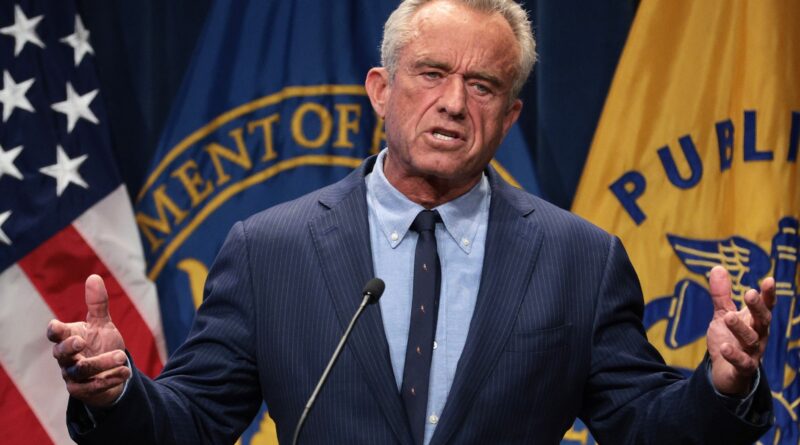CDC official questions Hepatitis B vaccines for infants
A former naval officer who served as the CDC’s top vaccine official has stirred up controversy and found himself under media scrutiny after questioning the efficacy of certain childhood immunizations. This situation was primarily brought about due to a clash of opinions with RFK Jr., which led to a shake-up within the organization. Senator Rand Paul has put a fresh spin on the debate by succinctly contradicting his claims in a few well-chosen words.
The genesis of the controversy started with the former CDC official questioning the rationale behind the administration of the hepatitis B vaccine to infants. It was during his tenure as the boss of the CDC’s immunization department that these concerns emerged. The vaccine in question became a part of the immunization schedule for children in 1991; a decision that he found questionable.
His career took a turn, however, during President Trump’s era, when RFK Jr. was positioned at the helm of HHS. In what appears to be a discord over the vaccination program, Susan Monarez, the then Director of the CDC, was relieved from her duties. Following this development, our main figure decided to part ways with the organization.
Upon the termination of his service, he drafted a heartfelt resignation letter, stating that the sway of politics over scientific reason was seriously damaging and put the wellbeing of susceptible adults and children in danger. His resignation letter brought up a critical point: ‘The quest to meet the demands of a political agenda may lead to the death and disability of vulnerable individuals.’
In the post-resignation period, the former immunization head has been actively spreading his word through multiple media platforms. With each appearance, he continues to underscore his contrasting stance with RFK Jr. over the vaccine policy.
On the topic of the hepatitis B vaccine, it is essential to know that it did not gain wide acceptance among its intended key beneficiaries back when it was introduced – drug abusers who use injections and people indulged in risky sexual behavior. Infants, who don’t partake in these activities, are not in the risk category for this disease, yet they are the ones receiving the shot from birth.
This decision triggers several queries, particularly as the protection period offered by the Hepatitis B vaccine is calculated as around of 6-7 years, lending some to question why this injection is administered to newborns. For many years, the logic behind this decision have left folks puzzling.
The chances of a child catching the Hepatitis B virus is negligible unless the baby’s mother is infected. Mothers-to-be are usually investigated for Hepatitis B during their pregnancies. As long as they are not carriers of this virus, the danger to the newborn is nonexistent.
Moreover, the fact that the vaccine’s potency tends to fade by the time the child reaches the teenage years reiterates the argument regarding the benefits of a Hepatitis B shot for a child born to a non-infected mother. The administration of such a shot seems unwarranted and gives little to no advantage to the newborn’s health.
The heated debate took a new turn when Senator Rand Paul, a medical practitioner himself, refuted the former CDC official’s worries about the Hepatitis B shot for newborns in a compelling manner. Senator Paul raised a compelling counternarrative: ‘No rational reasons to immunize newborns with Hep B vaccine if the mother is not infected. All mothers giving birth at hospitals undergo tests. This health professional’s extraordinary attachment to vaccines doesn’t seem to be substantiated by the evidence.’
Senator Paul’s response was released on social media and quickly went viral, accumulating more than 1.1 million views in the initial eight hours itself. His strong resistance to the former CDC official’s opinion earned him a considerable amount of backing from his followers on social media.
One of his followers stated, in a clear-cut manner, that the Hepatitis B vaccination for infants is unnecessary and its discontinuation has been long overdue. In his words: ‘The Hep B vaccine for infants had a lifespan longer than necessary. It’s high time it was put out of commission.’
The narrative surrounding the Hepatitis B shot for newborns still lingers on, with both sides making compelling arguments. However, it remains imperative that immunization programs and decisions should be led by scientific evidence, ensuring the wellbeing of children and adults alike.
While the power of public opinion can be persuasive, it should never overlook scientific facts and knowledge and the weight they carry. Policies should also be framed for the larger public benefit and should be reinforced with meaningful legislation that serves the best interest of the public.



